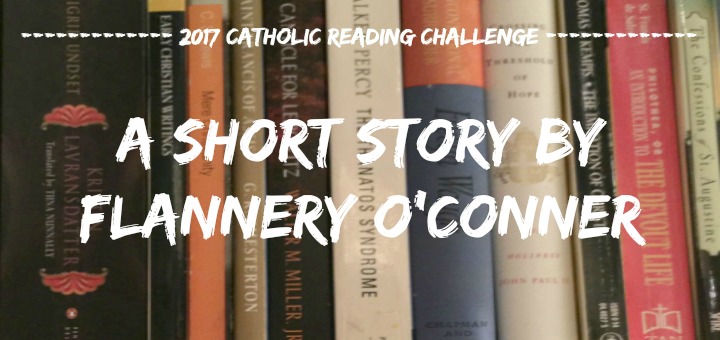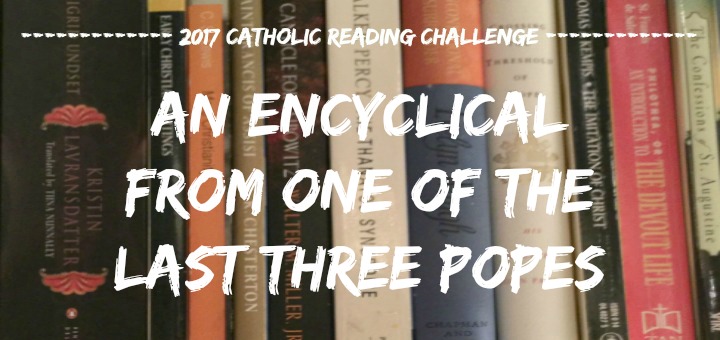How are you doing on your picks for the 2017 Catholic Reading Challenge? As promised, I’m sharing what I’m reading for each category throughout the year.

Category: A Short Story by Flannery O’Conner
I’m a Flannery fan girl. I had read the collection of short stories titled Everything that Rises Must Converge, but I had never read A Good Man is Hard to Find and Other Stories. So that was an obvious pick for me.
If you have never read O’Conner, she is jarring — but on purpose. All of her stories have some element of violence in them, which brings about some redemptive purpose or conversion in the character(s). Violence is her path to redemption, because it gets a person’s attention.
In this story, as in many of her others, characters seem to be going about life stuck in a sort of “malaise” (to use Walker Percy’s term). The intentional violent elements serve to wake them up — and wake us (the readers) up too.
O’Conner is not everyone’s cup of tea, and I get that. But I think some people sometimes miss the intentionality of her use of violence in story, therefore, missing the underlying message completely. Her stories don’t fit into a paradigm of “nice Christianity” — a polite, don’t-rock-the-boat, comfortable life with faith as an accessory. No, Flannery’s stories are not nice; but they actually are not tragic and terrible either.
A frequently repeating message throughout her fiction is that there are things much worse than a violent end, and many people live with those things in their mundane daily lives. Her stories turn the paradigm of “nice Christianity” on it’s head. For a violent end that brings with it conversion is actually not a tragedy, but is salvation. For O’Conner, the tragedy is the life lived in the haze of self-sufficient modernity, ignorant of the alternative. When I read Flannery’s short stories, I see her trying to save her characters from themselves, to save us from ourselves, and to save society from itself. Try reading her with that persepective in mind, and see what you take away.
What O’Conner short story did you read for the #2017catholicreadingchallenge? If you are posting your pick on social media, remember to use the hashtag!



